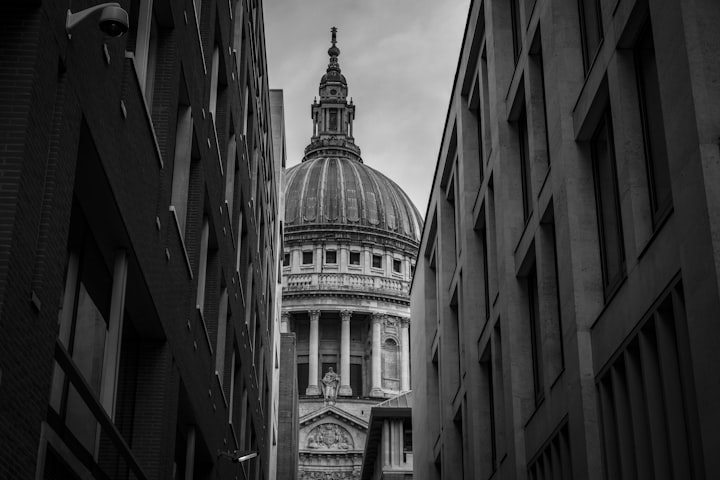This Is The Harsh Economic Lesson We Have To Learn Now!
There is no prosperous economy if people are ill, traumatise or dead.

Making predictions during a pandemic is hard. The situation is changing so much every day that, everything you believed you knew last week is now wrong. And things need to be re-evaluated.
Numerous articles about the COVID-19 virus argue that achieving herd immunity may be one solution to our crisis, although potentially dangerous. Many of these frame herd immunity as a prevention technique that can slow the massive wave of disease.
That's just pure nonsense. By definition, herd immunity without a vaccine is not a preventive measure.
Let me explain
Herd immunity is a concept that describes the state where a population is sufficiently immune to a disease that the infection will not spread within that group. In other words, a sufficiently high proportion of people are immune to the virus, – either through vaccination or natural immunity – that the vulnerable people are protected.
COVID-19 is, has an R0 of roughly 3.
With this number, the proportion of people who need to be infected is quite high, sitting at around 70 per cent of the entire population.
That is why herd immunity could never be seen as a preventative measure.
When 70 per cent of a population is infected with a disease, it is by definition the contrary of prevention. How can it be? Most of the people in the country are sick! And the optimistic nonsense to reach that 70 per cent by just infecting young people is absurd.
Having only young citizens are immune, you would have a group of older citizens with no immunity at all, making it very risky for those over a certain age to leave their house as they could get infected.
It's also worth thinking about the repercussions of this disastrous scenario – the best estimates put COVID-19 infection fatality rate at around 0.5-1 per cent. If 70 per cent of an entire population gets sick, that means that between 0.35-0.7 per cent of everyone in a country could die, which is a catastrophic outcome.
With something like 10 per cent of all infections needing to be hospitalised, you'd also see an enormous number of people very sick, which has considerable implications as well.
Let us assume for now that this response is scientifically sound and that within a certain prolonged period - experts talk about several months - herd immunity is built.
Even with the best national health care system in place, and without the kind of system breakdown that we saw in Lombardy, Madrid and New York City, we know that COVID-19 is significantly more deadly than common influenza.
So why would a public health strategy be acceptable just because, as far as we know, the virus kills older people and people with underlying conditions principally? What does this say of a society that allows the elderly and the sick to die in numbers, as an alternative to extensive economic loss created by more stringent measures?
We have to let anthropologists and experts of discourse and ideology answer those questions.
Some seem to suggest we cannot interfere with the market
Some arguments seem to suggest we cannot interfere with the market; otherwise, we will get punished. That is also what US President Donald Trump tried to convey when he said the deaths produced by an economic crisis caused by lockdowns would be far greater than the deaths from COVID-19 itself. He suggested, with no evidence, that, by choosing the markets over public health, he is saving the United States from an even bigger disaster.
The COVID-19 public health messaging in the West is mainly directed at the "healthy" population. As a healthy person, "you" not only are not likely to die, but in the vast majority of cases might only experience moderate symptoms, if any.
This effectively reassures the public that identifies with that "you", that COVID-19 is a problem only for the "others". And if you wish to be generous, apply a bit of social distancing to reduce transmission so that they do not all become critically unwell or die.
Of course, more and more reports about COVID-19 deaths among younger people with no pre-existing conditions are already suggesting a mixed image. "You" could be one of "them", we do not know it.
From an economic perspective
Let me begin with the least significant impact from an economic perspective, and that is the drop in production due to workers off sick. It is least important partly because firms have means of compensating for this, principally if an illness is spread over a few months. For example, those who have been sick can work overtime when back.
This will increase costs and might lead to temporary inflation, but it will soon readjust.
This 'direct' impact of the pandemic in the UK will reduce GDP in a quarter by a few percentage points. The exact number will depend on what proportion of the population fall ill, on the lethality rate, and how many won't go to work in an effort not to get infected.
The impact on GDP for the whole year following the pandemic is much less at around 1 or 2 per cent, partly because output subsequent the pandemic quarter is higher as firms replenish reduced stocks and meet deferred demand.
All that assumes schools do not close once the pandemic hits.
School closures will amplify the loss in labour force if some workers are forced to get time off to look after children. Based on the assumptions we made, if schools close for about four weeks that will multiply the GDP impacts above by as much as times three.
If schools close for an entire quarter, the effect will be by twice that. If that seems large, remember national school closures affect everyone with kids and not just people who are ill.

But even with all schools closed for three months and many people avoiding work when they were not sick, the most substantial impact we got for GDP loss over a year was less than 5 per cent.
That is a very hard one-quarter recession, but there is no reason why the economy will not bounce back once the pandemic is over. Unlike a typical recession, data on the cause of the output loss, and consequently when it should end, is precise.
Demand shock
All this assumes that consumers who not ill yet do not change their behaviour. For an outbreak that spreads gradually, this is unlikely. The most valuable lesson to understand is that pandemic calls not only a supply shock. It can also bring a demand shock that can hit particular sectors hard, depending on how consumers act.
It is because much of the consumption can be considered social, meaning doing activities that bring people together— like going out drinking, bars, sports events, or travelling. It is also possible to hit other industries that include customer services that require personal interaction (such as haircuts) and can be easily skipped.

If people begin worrying about catching the virus enough to cut back on their social consumption, the impact on the economy will be harder than anything we have considered. It is a permanent loss. Maybe people will go out a bit more once the pandemic ends, but there will likely be a net drop in people social consumption in the year. Often we underestimate how much of our consumption is social.
This is why the most significant impacts on GDP happen when we have people diminishing their social consumption in an attempt not to fall ill. However, cuts in social consumption do not scale up all outlines by equal amount, because supply and demand are complementary.
If school closures and people take more time off-work increase the supply shock, the demand shock will cause damage. The most significant fall in yearly GDP in all the variants we looked at is around 6 per cent.
Business closures
Could monetary or fiscal policy balance the drop in social consumption? Only in part, because the decline in consumption is in particular areas. What is more significant, and what we should explore, is what would occur if the banks failed to give bridging finance for the firms dealing with an unexpected decline in demand. The banks may conclude that some companies, already indebted, may not be able to cope with any additional loans, leading to business closings.
It is in this case that we would see the stock markets around the world collapsing.
But economics can also influence health outcomes, and not just in terms of National Health Service resources. For a minority of self-employed workers, there will be no sick pay, and those without a financial cushion will be put under stress.
One of the worries as far as the outbreak spread is concerned is that workers will not be able to afford to self-isolate if ill. So a sick-leave fund to which workers could apply if they have coronavirus symptoms is crucial.
The government also needs to think about keeping public services and utilities running when workers in those services start falling ill. There are many things the government must do to prepare.
It is at times such as these, governments able to act fast and farsighted are crucial.
Are we sure that our governments are doing what is needed?
One thing I have no doubt is that the Coronavirus will teach us a harsh lesson: never put politicians who ignore experts in power.
About the Creator
Anton Black
I write about politics, society and the city where I live: London in the UK.






Comments
There are no comments for this story
Be the first to respond and start the conversation.